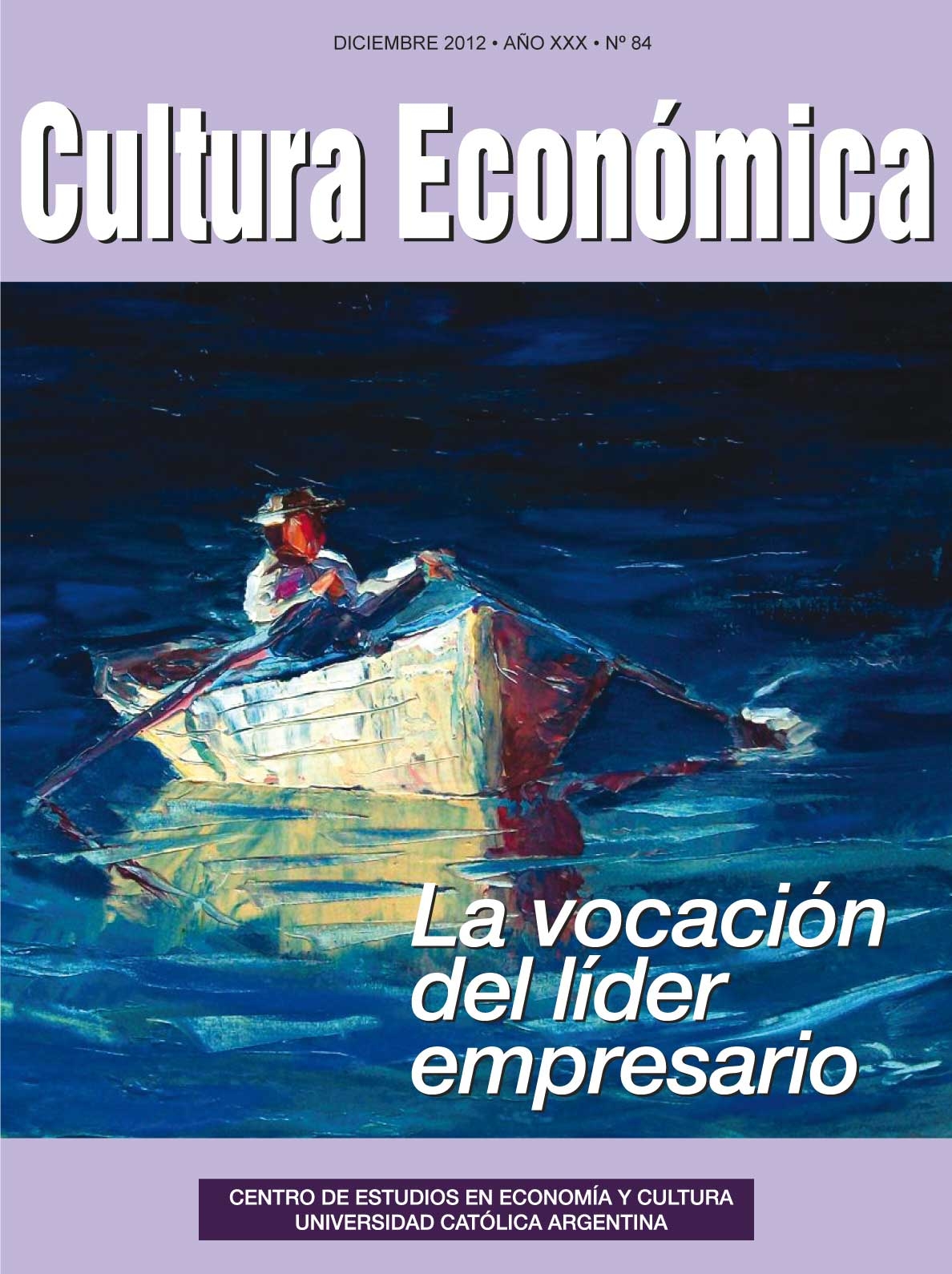To govern and be governed
Keywords:
ENTERPRISE, NEOCLASSICAL THEORY, ENTERPRISE HUMAN FACTOR, LEADERSHIP, SOCIAL DOCTRINE OF THE CHURCHAbstract
The author provides a diachronic study of the concept of enterprise through the changes of approach under which it has been understood. On this basis, the article is divided into five parts: the first where the author traces a journey through the various attempts of man to explain social order without resort to tradition but to a rational mathematical model, until reaching the idea of Walras’s general equilibrium. Then it focuses on the notion of
enterprise in neoclassical theory, conceived as a mental function and at the same time as a power structure, a dichotomy that the theory does not solve. The next section examines the organization of work in an enterprise, this is, the human factor, which is conceived as a group of individuals immersed in a tradition and a community. In the fourth part, the author analyzes the
problem of business leadership and the morale of the entrepreneur. Finally, the author postulates the notion of leadership understood as a vocation.
Downloads
References
AA.VV. (2011) HBR’s 10 Must Read On Leadership. Harvard University Press, Cambridge MA.
Akerlof, George; Schiller, Robert (2009) Animal Spirits: How Human Psychology Drives the Economy and Why it Matters for Global Capitalism. Princeton University Press, Princeton.
Gardner, Howard (1996). Leading Minds: an Anatomy of Leadership. Basic Books, London.
Giffin, Douglas (2001). The emergence of Leadership: Linking Self-organization and Ethics. Routledge, London.
Grieves, Jim (2000). “Critical Review, images of change: the new organizational development”, Journal of Managemet Development vol. 19, nº 5: 344-447.
Mac Intyre, Alasdair (1994). Justicia y racionalidad. Eiunsa, Madrid.
Melé, Doménec (ed.) (2000). Raíces éticas del liderazgo: IX coloquio de etica empresarial y económica”. IESE, Barcelona.
Naughton, Michael; Alford, Helen. (2012) Vocation of the Business Leader: a Reflection. Pontifical Council for Justice and Peace (VBL).
Newman, John Henry (1890). The Arians of the Fourth Century. Longman, London.
Newman, John Henry (2011). An Essay on the Development of Christian Doctrine. www. dirigeads.com.
Nisbet, Robert A. (1999) Tradition and Revolt. New Brunswic and Pub., London.
Pieper, Joseph (2000). “Tradición”, Obras, vol. III. Ediciones Encuentro, Madrid.
Rieff, Philip (2007) The Gift of the Grace, and How it Has Been Taken Awey from Us. Pantheon Books, New York.
Rowland, Tracey (2003). Culture and the Thomist Tradition. Routledge, London.
Selznick, Philip (1957) “Leadership in Administration: A Sociological
Interpretation”. Harper & Row, London.
Witt, Ulrich (1998). “Imagination and leadership. The neglected dimension of an evolutionary theory of the firm”. Journal of Economics Behavior and Organization, vol. 35, nº 2: 101-177.
Downloads
Published
How to Cite
Issue
Section
License













